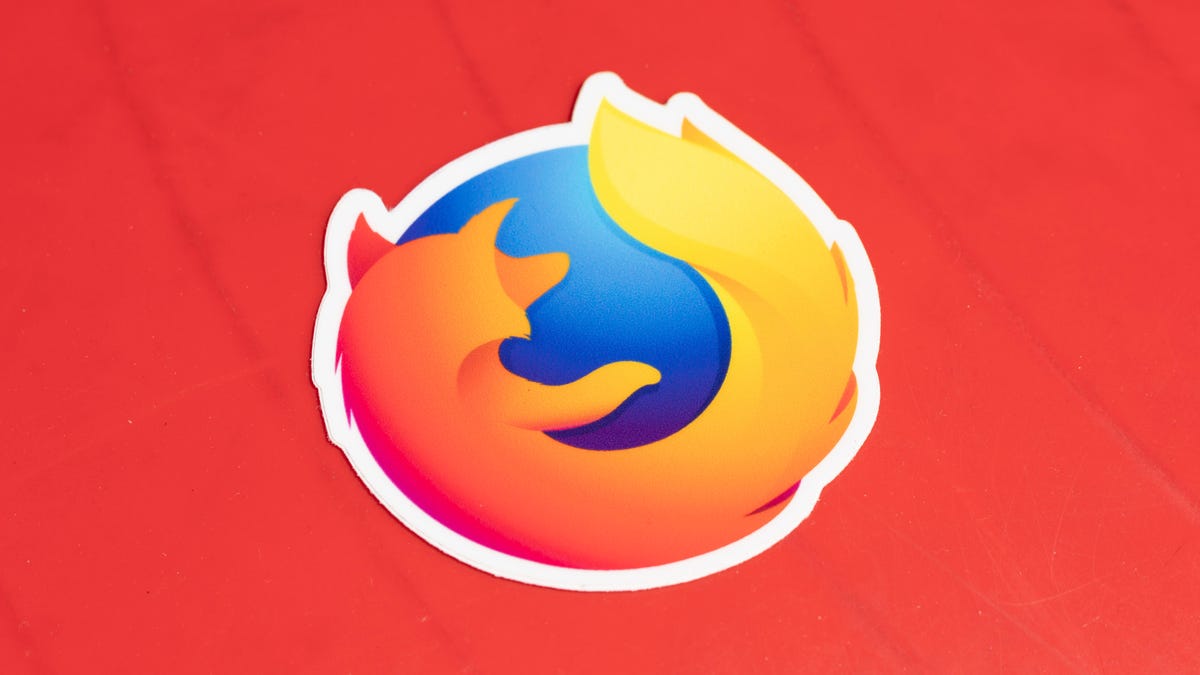Firefox coming to Windows 10 on Qualcomm Snapdragon-powered PCs
Mozilla hopes for a new browser beachhead on laptops using phone processor tech.

A Mozilla Firefox sticker
Mozilla is building a version of its Firefox web browser for Windows 10 personal computers using Qualcomm's Snapdragon processors, a move that boosts the chipmaker's efforts to challenge Intel's dominance.
Most PCs these days use Intel's x86 family of processors, though a small fraction come with AMD chips that can run the same software. But Qualcomm, smelling blood in the water with Intel's repeated delays for its next-gen chips, wants to power PCs with Snapdragon chips initially developed for its mobile phone business.
The only problem: Software for Intel PCs doesn't work on Qualcomm's chips, members of the Arm family that's universally used in mobile phones . Microsoft is a willing partner for Qualcomm, but Mozilla making a new variation of Firefox adds a little more clout.
"We can't wait to see Firefox delivering blazing fast experiences for the always-on, always-connected, multicore Snapdragon compute platform with Windows 10," said Marissa Morris, Mozilla's senior director of Firefox, reiterating Qualcomm's Snapdragon selling-points in a blog post Thursday. Qualcomm hopes we'll flock to PCs with mobile technology that offer fast wake-up and connections to mobile networks.
The alliance, announced at the Qualcomm Snapdragon Technology Summit in Hawaii, shows how even powerful tech players need to drum up alliances. Apple has a lot of control over iPhones , and Microsoft similarly over Windows. But it takes a long time to build ecosystems that combine hardware, operating systems and apps. That helps incumbents like Intel protect their turf, but it hurts them when they're trying to tap into the next big thing.
Browser makers are an important ally -- browsers are a crucial gateway to online services like YouTube and email -- but Mozilla isn't the only browser maker. In Microsoft's Thursday announcement that it's moving its Edge browser to Google's open-source Chromium project and dumping its own core technology, it also announced one fruit of that effort would be Edge for Qualcomm Snapdragon PC chips.
The Mozilla move helps Qualcomm, but Mozilla gets something out of it, too: a foothold on a potentially important new class of computing device. In terms of both users and usage, Firefox has been on the decline despite a massive effort called Quantum to overhaul and promote the browser. With Chrome more dominant than ever, Firefox needs every foothold it can get.
CNET's Holiday Gift Guide: The place to find the best tech gifts for 2018.
Taking It to Extremes: Mix insane situations -- erupting volcanoes, nuclear meltdowns, 30-foot waves -- with everyday tech. Here's what happens.

